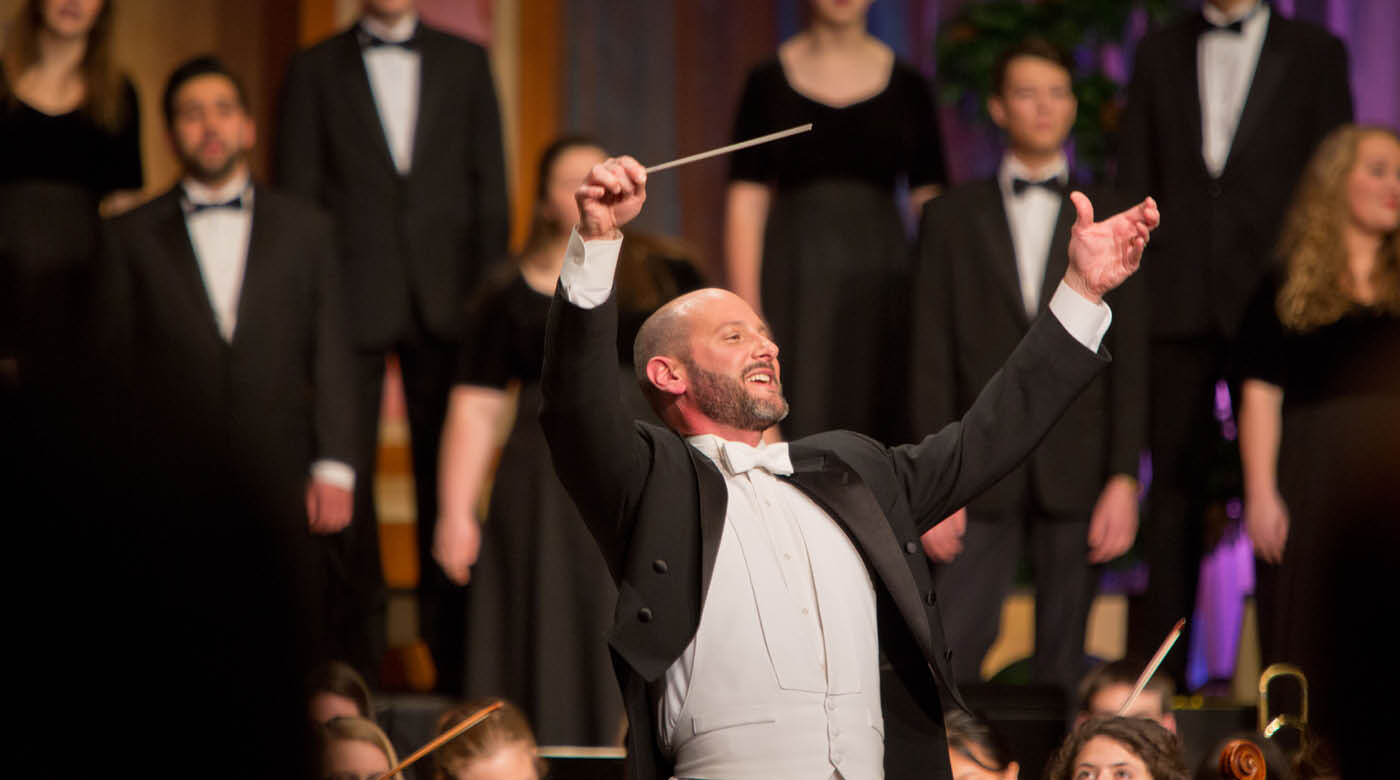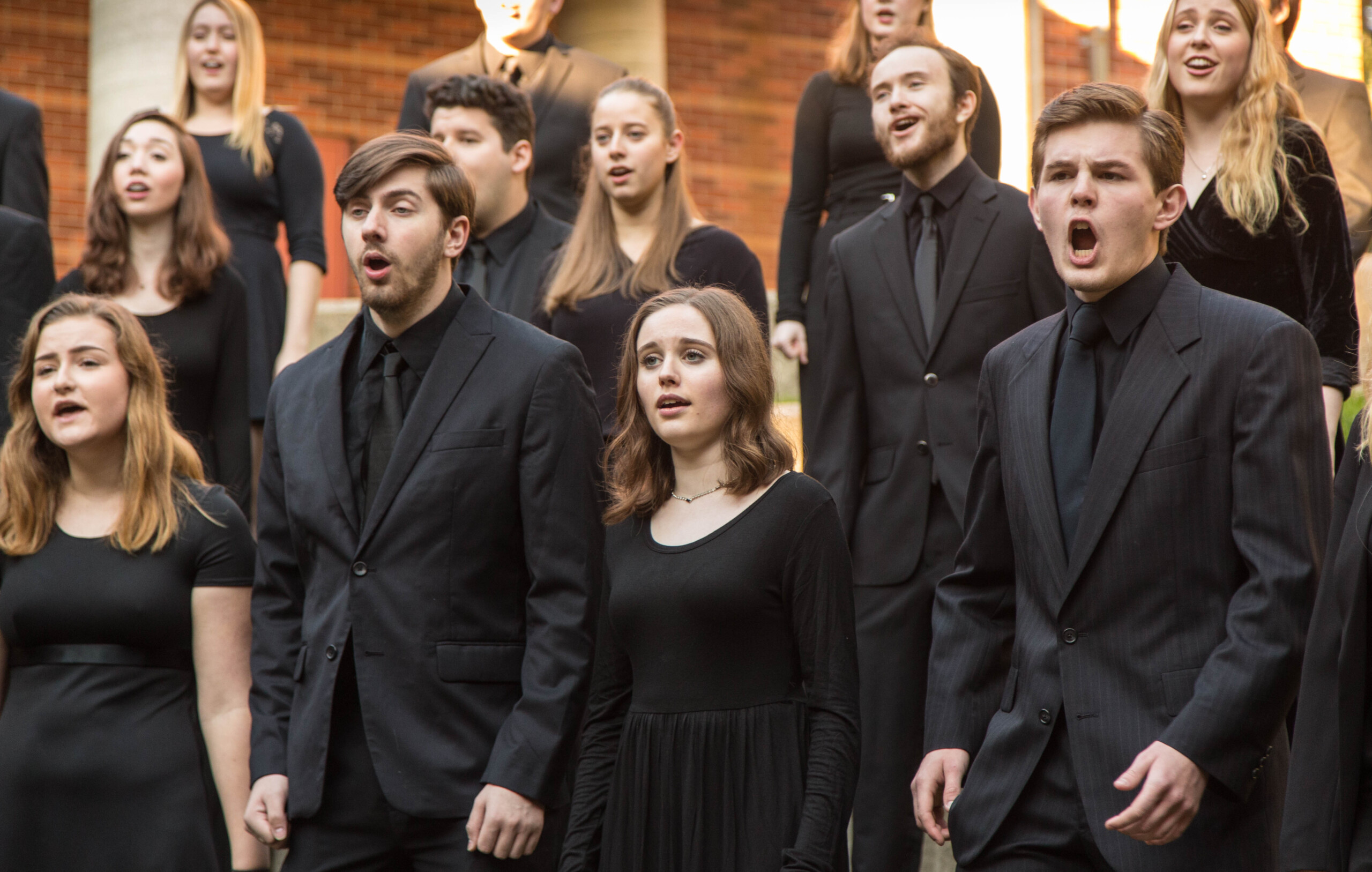Pandemic Performance: PLU Music Chair Brian Galante on education during the coronavirus

By Anneli Haralson
Marketing and Communications Guest Writer
As the effects of the coronavirus pandemic continue to impact the world, educators are being forced to get creative as classrooms move online. Remote learning combined with the cancellation of large, in-person events, and concerns over the germ-spreading potential of singing and playing wind instruments means Pacific Lutheran University’s Department of Music has had to rethink everything from instruction to performance opportunities. We asked Brian Galante, chair of the PLU music department, to talk about how faculty are working to preserve valuable instruction while keeping students safe.
Can you give us a glimpse into what it has been like trying to rethink education during this time?
It’s tempting to think that teachers simply continue to teach as they always have, but now they just do so in front of a camera. That could not be further from the truth. It’s like asking someone to recite the alphabet backwards. It’s possible, and we still know the letters, but it requires a completely different way of thinking—and it takes longer. We’ve been in one long cycle of planning, adapting, recreating, and reimagining our work.
One product of that cycle is the nearly 50 masterclasses, guest lectures, and Q&A sessions with acapella groups, opera singers, and musicians. Tell us more about how that came to be.
When we discussed our plans for the fall semester, the music faculty knew that we needed to focus on what we can do. Instead of asking what is impossible this year, we asked what’s impossible in a normal year. It didn’t take long to realize that the normally busy schedule of rehearsals, practicing, classes, performances, productions, etc., limited our availability to engage in collaborations with professional choral ensembles and major symphony orchestra musicians. Our artform was never meant to be stuck behind a computer screen. But if we’re going to be stuck behind a computer screen, we decided to dream of some incredible musicians that we’d like to join our students in those squares.
What is the value of having these well-recognized masters of their field teaching students?
In addition to receiving incredible feedback on their performances, students have heard artists discuss struggles with performance anxiety, issues with bias (racial and otherwise) in casting, and experiences of loneliness on tour. They’ve received advice on self-promotion and networking from premier conductors and composers and been encouraged to use this time as an opportunity for musical and personal growth. They’ve also come to know the lasting connections and friendships that our faculty have developed with these artists, and realized the potential for their careers after graduating from PLU.
In addition to the masterclasses, there are plans for virtual concerts. When and what are they?
We are planning a series of recordings that will capture our work with students this semester. Some of these recordings will be released in December, to help us celebrate the season, some will come out in January, and some will simply be used for evaluation and improvement within the ensembles. These recorded concerts will be announced on the School of Arts and Communication email newsletter and our Facebook page.



